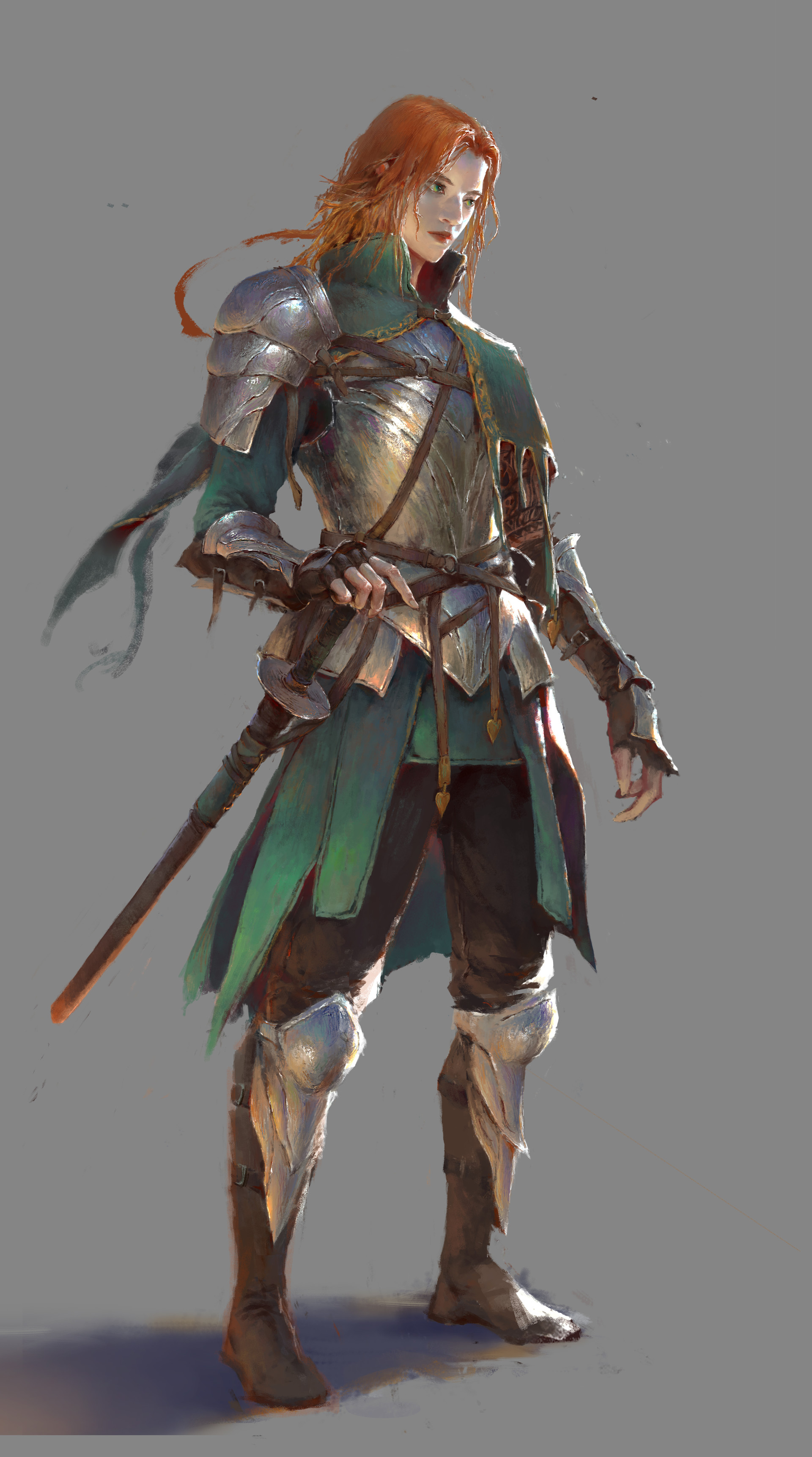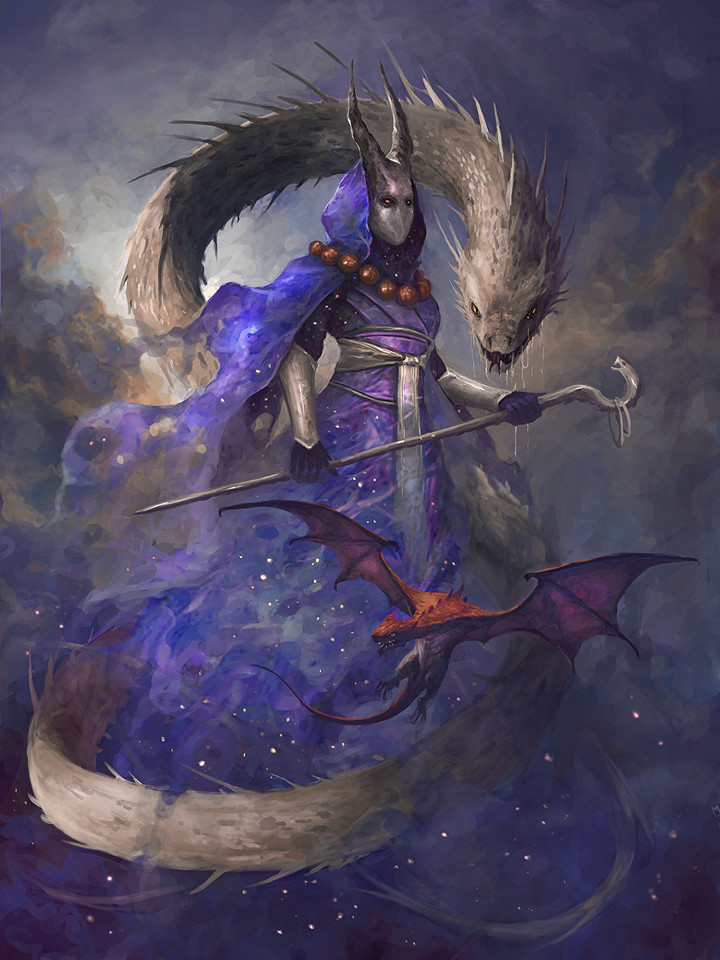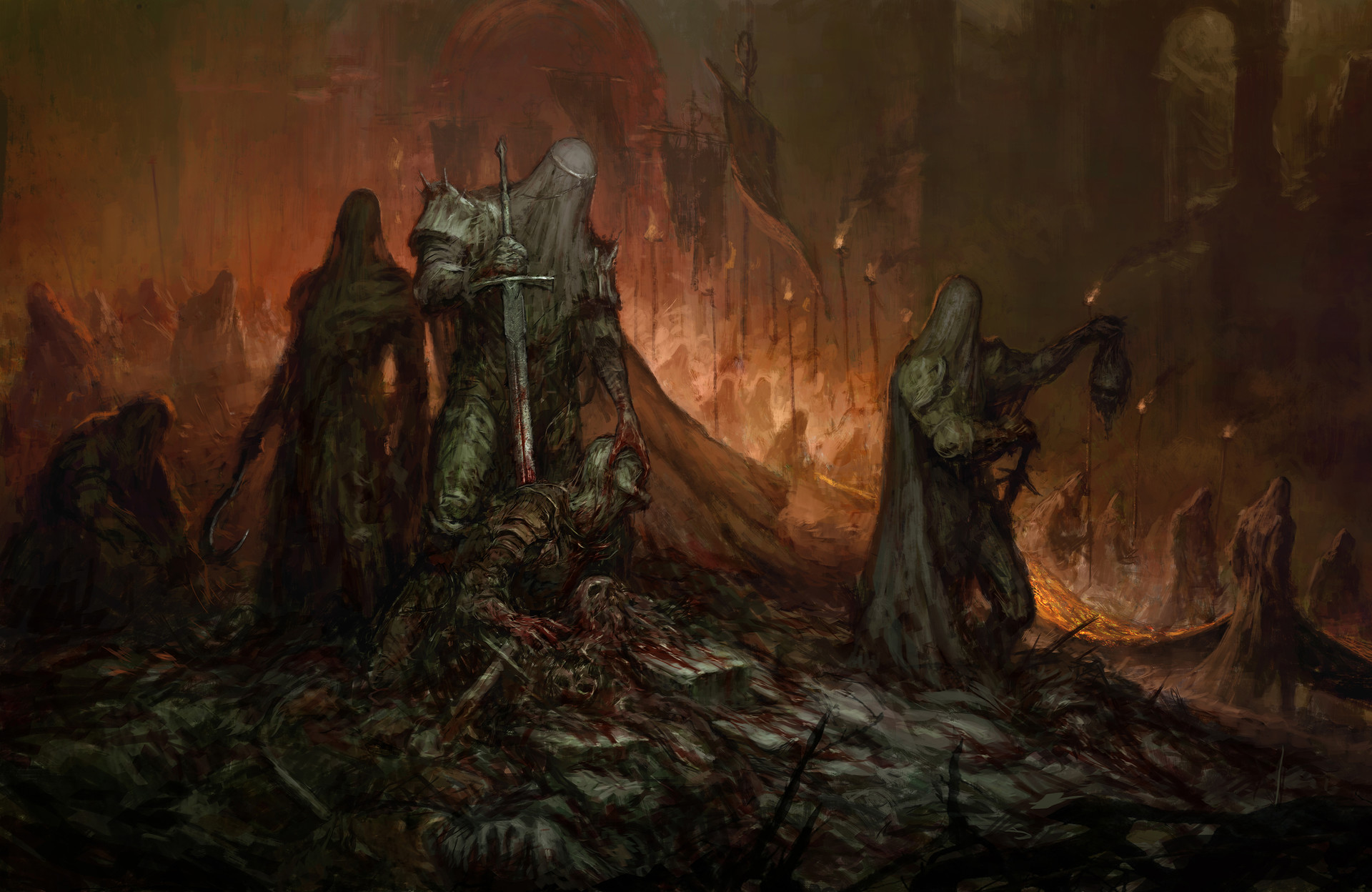 |
| Two Keywords: Knight + Calm & Collected. |
There is still advancement in what I'm crafting . I'm a strong believer that a setting or campaign should have it's own method of dolling out XP. Below are some methods common:
- Treasure as XP
- Killing as XP
- Finding resources as XP
- Discovering/clearing hexes or dungeon rooms as XP
- Narrative milestones for XP
Instead of giving people fat ass numbers (TM) for XP, I want to go this route:
When you complete X task for experience, you receive 1 experience point. You can spend this experience point at the beginning or end of a session to roll on your Class Advancement table (CAT) or to buy a new keyword.
With the above, you get ye olde' advancement (either generic or with a cool new class button feature) or a new keyword to further expand what your character is narratively. Well, I guess both expand them narratively, but the latter is more focused on what you can do beyond your class constraints.
Below is a slightly amended class advancement table detailing the generic half for all characters.
SO now that there is no leveling up, what does that mean for adventures that detail levels? Use this conversion:
For every even level needed, roll once on the CAT. For every odd level, take a new keyword. So if the adventure requires level 5 characters, that's 2 bonus rolls on the CAT, and two bonus keywords.
At level 1, you take 2 keywords and roll once on the Class Advancement Table.
Because of this system, characters will have different amounts of HD, saves, hirelings, success rolls, and unique class abilities. This is intended; the party is diverse, and one's niche in a party forms overtime from their rolls on the CAT. Some people will be able to take more damage and can play to these strengths, while others will be better at avoiding shit all together, and others will just have a very unique toolset of abilities to pull out. I like this, as it adds a total of three ways to make your character different from others: Generic Differences, Class Unique Differences, and Keyword Differences.
 |
| After rolling on the CAT like 8 times. |
Now, using this system, let's establish some conversions:
- Treasure are now treasure hordes. A Referee should know how much treasure is inside of the dungeon they're about to run. If the party successfully absconds with 50% of it, they are awarded 1 XP. If they get 90% or more, they get 2 XP.
- Combat yields 1 XP for every 10 monsters killed, requiring 10 more the next time. So if you kill 10 monsters, you have to kill 20 for the next 1 XP. If you kill a one-of-a-kind monster or antagonist, like Strahd or Acerak or the Anti-Pheonix, you gain 1 XP automatically.
- Resources that can last the entire party 1 week earn 1 XP.
- For every 5 hexes or 10 dungeon rooms cleared he party earns 1 XP. If a dungeon or area has less than this amount, once it's cleared, the party still gains 1 XP.
- Milestones are 1 XP each.
I suggest taking 1-2 of these above items, and then creating a special 3rd one, and having those three be your methods of gaining XP. This gives a given campaign some breadth in what can be done, and also makes things personal for your table/setting/world.
 |
| Running out of AC is bad. |
For those paying attention to this series, they'll notice hitting stuff is now a to-hit roll under your Athletics attribute. So, what about AC/Armor?
AC still exists, but not in the same way it used too. Your AC (calculated from armor bonus + every point of Athletics above 10) is a pool you can use to reduce damage. It works as thus:
When you would take damage from an attack, you can choose to instead subtract from your AC pool. You reduce the pool by 1, 5, or 10 depending on what the amount of HD the attacker has. At the beginning of your next turn, can forgo an attack to instead regain +3 AC that cannot exceed your maximum AC amount.
HD to AC Subtraction Chart
- 1-3 HD=subtract 1 AC
- 4-10 HD=subtract 5 AC
- 11+ HD=subtract 10 AC
This is simple to me. I choose this instead of subtracting exact damage because I don't want a bunch of fiddly math. Monsters do not roll to hit; you either take the damage or subtract from your AC. This creates a system where combat is dangerous, you have protection, and where attacking creatures requires weighing the risk vs reward of losing AC vs doing damage.
The reason you add your Athletics is for the obvious reason that the more athletic you are, the better you are at getting hit. Some class features may change this to Savvy or Weird or something else, but default is athletics.
 |
| 100% uses Weird for AC. |
Armors that reduce dex bonuses reduce Atheltics bonuses for the same amount. So a heavy ass chain coat that gives you AC 14 + dex (max 2) now gives you AC 4 + athletics (max 2). This creates a game where thief-like characters can avoid damage suitably well, but they can also take a few precautions to make sure they don't get fucked when caught.
That leaves hirelings. Without Charisma as an attribute or levels, how do we judge this?
Loyalty checks are weighed against whatever attribute you used to attract your hirelings. If you attracted them through force of arms (Athletics), you do that. If you attracted them through barganing, good prices, favors, etc (Savvy), you do that. Weird is for those attracted to your magical prowess, or how in tune you are with the supernatural, etc. If you use the Reputation attribute in your game, that's even better. This applies to morale checks and reaction checks as well.
 |
| Getting hirelings through Weird. |
How many hirelings you can have is gated purely by how much money you have to pay them. If their loyalty is ever rendered questionable through PC abuse, or frequent death, or bad circumstances, it's just another check against the attribute that the PC uses. If the PC has used multiple attributes, focus only on their biggest attribute for keeping them. The Barbarian Chieftain may have beaten some people into submission and talked others into it, but it's his power over ancestral spirits that keeps people there.
After pt. 5, which will be a huge list of keywords + a sample fully completed class, I'll move on to basic game mechanics. Eventually I'll name this system and make it into a nice little PDF or booklet or something.
No comments:
Post a Comment